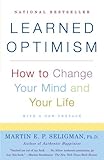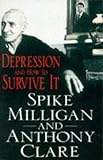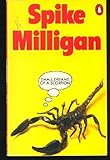Almost all of us have experienced some form of depression, perhaps one in four or five at any one time. For the ones that haven’t (or haven’t yet), it can be near impossible to adequately understand what the partner or friend is going through, and by the nature of the beast, near impossible for them to tell you.
There is a huge amount of material in print and online about depression, and it is my view that much is good, but much is not so good. My reasons for adding the following comments are as follows.
- Let’s not be dogmatic. We do owe a lot to all the professional doctors, researchers, and modern medication; however, they would not be telling the truth if they claimed to have the perfect answer. For all our similarities, we are not robots, we are all unique.
- Although I fully accept the need for up to date advice, depression is almost as old as mankind, and the thoughts we do have in writing, from the Bible, the Koran, Confucius, and others, as well as modern first person accounts, can be helpful, even illuminating.
Timothy Bright (1586) wrote: ‘How diversely the word melancholy (depression) is taken’. He categorised depression as that type which ‘is not moved by any adversity present or imminent’ in which ‘the melancholy.. abuseth the mind’. He was describing a depressive disorder, almost certainly bipolar depression. He also described a second type of melancholy where ‘the peril is not of body’ but ‘proceedeth from the mind’s apprehension’ requiring ‘cure of the minde’, or as we would say, psychotherapy..
A book published in 1990, Learned Optimism: How to Change Your Mind and Your Life, by Martin Seligman, is very useful for measuring how we feel about ourselves, and the dangers of negative thinking. I know that there are a lot of psychotherapy books, mainly American, on ‘the power of positive thinking’. The problem is one of practicality. It can be the equivalent of telling someone who is severely depressed to pull themselves together, analogous to the problem addressed in James 2: 15, ‘if a certain one says: Go in peace, keep warm and well fed, but you do not give them the necessities for their body, of what benefit is it?’ But ask yourself, what do you say to yourself when you experience the failures and disappointments that inevitably will befall even the most fortunate?
of negative thinking. I know that there are a lot of psychotherapy books, mainly American, on ‘the power of positive thinking’. The problem is one of practicality. It can be the equivalent of telling someone who is severely depressed to pull themselves together, analogous to the problem addressed in James 2: 15, ‘if a certain one says: Go in peace, keep warm and well fed, but you do not give them the necessities for their body, of what benefit is it?’ But ask yourself, what do you say to yourself when you experience the failures and disappointments that inevitably will befall even the most fortunate?
Dr Seligman well describes all the lessons we learn in childhood and adolescence as the means we draw upon to explain our setbacks to ourselves, as opposed to others. For some, the automatic response to any setback is: ‘It’s just me. I cannot change. I will always be a failure.’ But others are able to say and believe: ‘It was just the circumstances, a one-off. Besides, there’s much more to life.’
The book reminds us we need to stop automatically assuming guilt, seeing the direst possible implications in every setback; how, in short, to be optimistic. This is not just a plausible theory, we are shown real life examples that document the effect of optimism on quality of life, and specific exercises to help break the old habits of pessimism.
The wind was against them now, and Piglet’s ears streamed behind him like banners as he fought his way along, and it seemed hours before he got them into the shelter of the Hundred Acre Wood and they stood up straight again, to listen, a little nervously, to the roaring of the gale among the tree-tops.
“Supposing a tree fell down, Pooh, when we were underneath it?”
“Supposing it didn’t”, said Pooh after careful thought.
A A Milne The House at Pooh Corner (1928)
Spike Milligan (1918– 2002), was a wonderful, anarchic, comedian, actor and writer; of an Irish family, but the majority of his working life was spent in Great Britain. Milligan was the co-creator, main writer and a principal cast member of The Goon Show.
Milligan wrote and/or edited many books, including Puckoon, and a six-volume autobiographical account of his time serving during the Second World War, beginning with Adolf Hitler: My part in his downfall. He is also noted as a popular writer of comical verse. Television director Richard Lester recalls that the television series A Show Called Fred was recorded live. “I’ve seen very few moments of genius in my life but I witnessed one with Spike after the first show. He had brought around a silent cartoon” and asked Lester if his secretary took shorthand. She said she did. ‘Good’, said Spike, ‘this needs a commentary.‘ It was a ten-minute cartoon and Spike could only have seen it once, if that. He ad-libbed the commentary for it and it was perfect. I was open-mouthed at the raw comedy creation in front of me”.
Even late in life, Milligan’s black humour had not deserted him. After the death of friend Harry Secombe from cancer, he said, “I’m glad he died before me, because I didn’t want him to sing at my funeral.” A recording of Secombe singing was subsequently played at Milligan’s memorial service. He died at the age of 83, on 27 February 2002, and once famously quipped that he wanted his headstone to bear the words “I told you I was ill.”
He suffered from severe bipolar depression for most of his life, having at least ten mental breakdowns, several lasting over a year. He spoke candidly about his condition and its effect on his life: ‘I have got so low that I have asked to be hospitalised and for deep narcosis (sleep). I cannot stand being awake. The pain is too much… Something has happened to me, this vital spark has stopped burning – I go to a dinner table now and I don’t say a word, just sit there like a dodo. Normally I am the centre of attention, I keep the conversation going – so that is depressing in itself. It’s like another person taking over, very strange. The most important thing I say is ‘Good evening’ and then I go quiet’.
In 1993 he collaborated with Dr Anthony Clare on Depression and How to Survive it. ‘Spike Milligan describes in a particularly powerful and reflective way what it is like to be depressed, and the factors in his make-up which may or may not have contributed to his experience of depression. He considers whether, looking back, such mood swings have proved any benefit (given that it is often said genius is related to madness), or whether they have disfigured in an irredeemable way what would otherwise have been a happy and fulfilling life.’ Just to make it clear, this is not a comedy book, it is a serious look at the subject, using Spike’s experiences like a ‘case history’ but Spike’s personality shone through for me.
The book illustrates in a particularly powerful way how depression can strain family relationships. Why is it so difficult to communicate how you feel? There is a desire to avoid causing pain and anguish, a desire to avoid being a burden. For their part, relatives can find the presence of a depressed family member profoundly distressing. Relatives can feel threatened and hurt to find that a loved one feels suicidal. They feel they must have failed the depressed person in some way. Often it is too difficult to get it right, and emotional involvement, the needs of children or other dependents, or family history, mean outside counselling, formal or informal, is essential. So many of those who have benefited, wonder why they delayed so long.
and hurt to find that a loved one feels suicidal. They feel they must have failed the depressed person in some way. Often it is too difficult to get it right, and emotional involvement, the needs of children or other dependents, or family history, mean outside counselling, formal or informal, is essential. So many of those who have benefited, wonder why they delayed so long.
If you struggle to understand or give meaningful help to a depressed friend, start by reading Spike Milligan’s story.
I see barbaric sodium city lamps
pretending they can see.
They make a new mad darkness.
Beyond their orange pools
The black endlessness of time beckons
What, in that unseen dark tomorrow
is waiting…
That iron tomorrow, coming on
unknown wheels
Who is the driver,
Will he see me in time?
Spike Milligan Small Dreams of a Scorpion (1973)
See also Reviews Manage Your Mind: The Mental Fitness Guide and Helplessness: On Depression, Development and Death